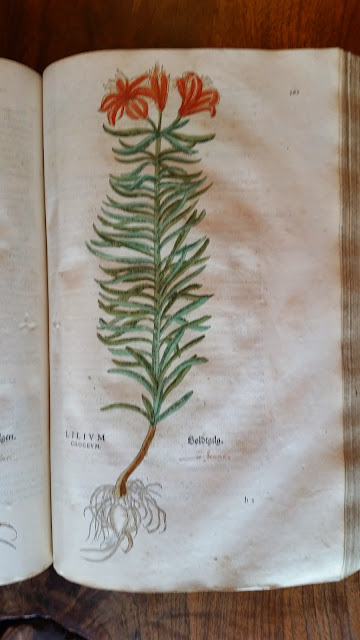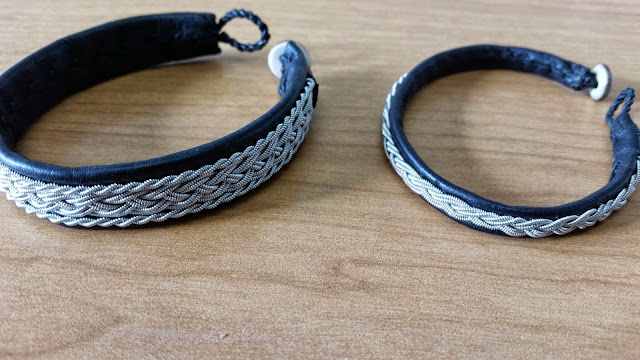I thought it world be fun to post a few of these delightful old Valentine's on this frigid Valentine's Day. Nora is the beholder of these charming greetings and she copied them for me. They were given to her mother many, many moons ago. Thought you'd enjoy them. Happy Valentine's Day!
The MN Herb Society (formerly the Twin City Herb Society) was founded by Helen Olsen in 1963 to encourage the study, growing, & use of herbs. We are involved & committed to the MN Landscape Arboretum, maintaining the Kitchen Herb Garden, the Fragrant Herb Garden and the Knot Garden. We continue to be a group of Herb Enthusiasts that are well known, active, forward looking, fun loving, & interested in bringing our knowledge of herbs to the public.
Saturday, February 14, 2015
Thursday, February 12, 2015
Salomon Schinz; "Anleitung zu der Pflanzenkenntniss und derselben nutzlichsten Anwendung"
 |
| Lavandula |
As promised in a previous post, the following prints were taken from the 1774 book by Salomon Schinz, "Anleitung zu der Pflanzenkenntniss und derselben nutzlichsten Anwendung" (Instructions to the Knowledge of Plants and the Most Useful Application of the Same). Over 230 years after the Fuchs book (see previous blog post), Salomon Schinz created 100 prints from the original Fuchs blocks. While the prints were the same, when you view the last few pictures of this post, you'll note the dramatic difference between the prints. These prints were hand painted by orphans. It is surmised that this book was used as a type of textbook for students, and it does have plenty of hand written notes on the pages. Also, notice that the writing from the pages behind these prints bled through and created almost a beautiful watermark type of appearance.
Once again, we thank the Andersen Library at the MN Landscape Arboretum & Librarian, Kathy Allen for sharing these beautiful treasures with us.
www.Andersen Horticultural Library |
| Thymus |
 |
Dianthus
|
 |
| Anemone |
 |
| Crocus |
 |
| One of several pages diagramming the anatomy of plants. |
 |
| Title page. Note the Roman numerals 1774. |
 |
| Hyoscyamus Niger (Black Henbane) |
 |
| Two peas in a pod. |
 |
| Chicory |
 |
| Veronica |
 |
| Borage |
 |
| Galium (Yellow Bedstraw) |
 |
| Brassica |
 |
| The same poppy print from each book. The top book is from the 1774 Salomon Schinz book. The bottom print is from the 1542 Leonhart Fuchs book |
 |
| Controversy still surrounds this Cannabis plant. |
 |
| The same maize print. The top book is from the 1774 Salomon Schinz book. The bottom print is from the 1542 Leonhart Fuchs book. |
 |
| Salomon Schinz index, showing each plate and which books held the prints of these plates. |
 |
| Sedum |
A Saami Sunny Morning
There's worse things to do on a February morning than to sit near a sunny window, sewing a Saami bracelet. Or is there? I did hear a few mutters though from near the window. We prevailed and 9 beautiful bracelets were created. For additional info on the Saami culture, check out this article at NationalGeographic.com Saami Reindeer Herders
Tuesday, February 10, 2015
A Shea Day
Several MN Herb Society members got together the other day to create some scented Shea butter for our personal skin care. Jan's kitchen smelled wonderful and we had some great conversations about books, seeds, projects, and an enlightening card reading.
Monday, February 2, 2015
Leonhart Fuchs "De Historia Stirpium Commentarii Insignes"
 |
| Chicory & Endive |
I was fortunate to spend the afternoon at the Andersen Horticultural Library at the MN Landscape Arboretum. Not only is this library a hidden jewel, with the beautiful furnishings of George Nakashima, but it also houses some beautiful rare books. This book "De Historia Stirpium Commentarii Insignes" by Leonhart Fuchs, a German botanist & physician, contains over 500 detailed woodcut prints that were handpainted. It was written in Latin and was a collection of medicinal plants. Imagine the time to cut these images into wood blocks. To see this book in it's entirety and be cognizant of it's age was a beautiful treat. I took photos of some of the prints that I thought you might enjoy. By the way, the fuschia was named after Leonhart Fuchs. Check back in a few days for additional prints of these blocks in a later book published in 1774, Anleitung zu der Pflanzenkenntniss (Guide to Plant Knowledge) by Dr. Salomon Schinz
Special thanks to the Andersen Horticultural Library & to Librarian Kathy Allen
for sharing this treasure with me.
 |
The title page from this 1542 book by Leonhart Fuchs.
|
 |
Leonhart Fuchs
|
 |
The 3 artists of the book; Albrecht Meyer drew the images, Heinrich Fullmaurer transferred the images onto blocks, and Vitus Rudolph Speckle carved the blocks & printed the images.
|
Clematis
|
 |
Larkspur
|
 |
Chamomile
|
 |
Dill
|
 |
| Artemesia |
 |
Sedum
|
 |
| Peony |
 |
Lily of the Valley
|
 |
Spignel
|
 |
| Squash |
 |
| Clematis |
 |
| Lily |
 |
Pepper
|
 |
| Dandelion |
 |
| Currant |
 |
| And my favorite, Leeks |
Subscribe to:
Comments (Atom)












